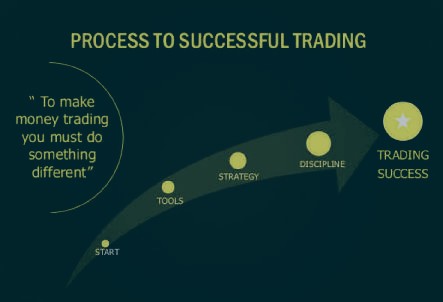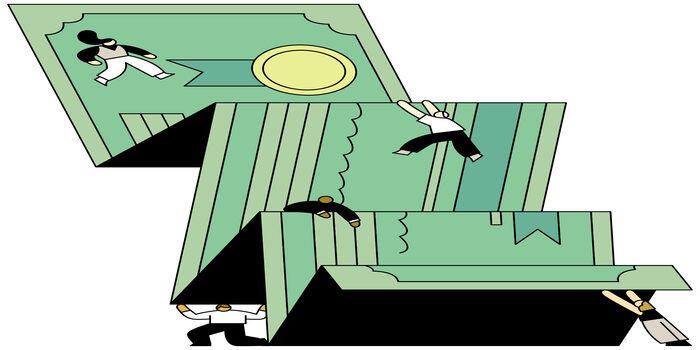The question of whether or not one can really earn a career trading stocks is a popular one among stock market fans. It's intriguing to think that one may make a living by trading stock instead of going to work. Making a livelihood trading stock may seem like a fairy tale to some, but the issue is not whether it is conceivable but rather if it is likely.
After finding some success in a simulated trading environment, inexperienced traders may opt to make a career in the real market. Some people do well at it, giving credence to dreams of retiring early to a sunny island and living off their laptops. Day trading strategies are widely used by professional traders, but research has shown that most day traders end up losing money in the long run. However, this fact in no way lessens the appeal of making a livelihood via trade, which is independence. Independence from a superior, the flexibility to set your own hours and work from any location, and the safety to pursue your passions without fear of losing your savings.
Trading Requires Discipline

If you want to make a livelihood trading, you'll need to develop a degree of attention and discipline that most individuals will never reach. The conventional approach involves purchasing low-risk assets and waiting for their value to appreciate over a long period of time. It's like the gap between little parts and starring roles in a film. Although home-based day traders don't report to a "boss," this occupation isn't for individuals seeking relaxed schedules and little stress. Trading strategies and timetables are everything to day traders. At regular intervals throughout the day, they painstakingly jot down notes on the securities on their watch list.
When a trader has reached his or her profit goal, they should immediately exit the trade and not wait around for the price to go up any further. Professional traders, on the other hand, know when to reduce their losses and exit a losing transaction without losing their cool. Scalping & swing trading are two common trading strategies that are comparable to day trading.
Learn What You Can About the Markets
Learn as much as you can about trading before you give up your regular job. If you want to be successful as a professional day trader, you need to know about all the many ways that markets may be traded and which assets are most suited for the methods you want to use. Traders can find a wealth of resources from the SEC & the IRS. You may familiarize yourself with the rules of the game with the aid of introductory literature on theories and techniques. Once you comprehend market concepts, goods, and institutional actors, practice paper trading. Full-time trading isn't a good idea unless you've shown your ability to consistently profit in a trading simulator over a wide range of market situations.
Select a Profitable Trading Method
You need a solid trading system that capitalizes on turbulence without ignoring risk management in order to enter the trading market. For the second time, this strategy has to be field-tested over a long period of time and in a wide range of market conditions. Gain experience with a practice account before making any significant financial commitments. The safe positions should be gradually replaced by the riskier ones.
Put Some Money Aside

Making a livelihood in trading isn't exactly a scenario that calls for a "poor boy becomes rich" tale. You will need a large amount of cash merely to just begin as a pro trader, and this is true regardless of whether or not you want to engage in day trading. Many seasoned traders recommend establishing a savings fund equal to at least one year of living expenses before you begin trading. You won't be able to make trades with this money. However, it will have to come from a different pot. This money is to be used only for essentials like rent/mortgage, utilities, food, and coverage. With this safety net, you won't have to worry about starting your new work and still being able to "pay the rent."
Day traders need substantial funds, not only for their trading accounts but for whatever kind of trading they want to do. Pattern day traders, which are individuals who initiate and conclude a trade on a similar day at least three times each week, are subject to additional regulations from FINRA. Pattern day traders trade every day. FINRA requires pattern day traders to have $25,000 in their accounts. That's $25,000 in addition to the annual salary you've already put away. Day trading further necessitates the use of a margin account, which is not difficult to establish for the average trader.
Increasing the value of each deal is something you'll need to accomplish if you don't wish to engage in day trading however yet want to earn a career off of trading. Because you won't be capable of completing as many transactions, you'll need to make sure that each one is for a sizeable amount of money. However, the more funds you invest in a single trade, the greater danger you put your account in.
Mindset
Emotions have no place in trading, especially for professionals. You'll need mental toughness to weather the storm of crushing losses that often occur in the first several weeks of day trading. To get over such setbacks, you need to address them with cold logic rather than emotion. Don't let your ups and downs of emotion prevent you from learning from your errors. Earning a livelihood via trading requires patience, hard work, and a little bit of luck, but the payoff may be substantial. Unfortunately, not everyone has the perseverance necessary to reach the point when they have a method that reliably generates profits. Keeping tabs on your income as it rises and falls every day may be taxing on the mind, particularly if the trend continues for a prolonged period of time.
Day trading may be upsetting for novices because of its rapid pace, volatility, emotion, and setbacks. The emotional toll of day trading may be devastating if you don't have the mental fortitude to ride through the inevitable ups and downs of the market without losing your cool.
The Bottom Line
If you want to earn a living by trading stocks, here are a few of the fundamentals you need to know. To put it bluntly, the chances are stacked against you. However, with hard work, self-control, and money, you can increase those odds. Mastering this technique brings thrill, freedom, and financial advantages.
watch next


